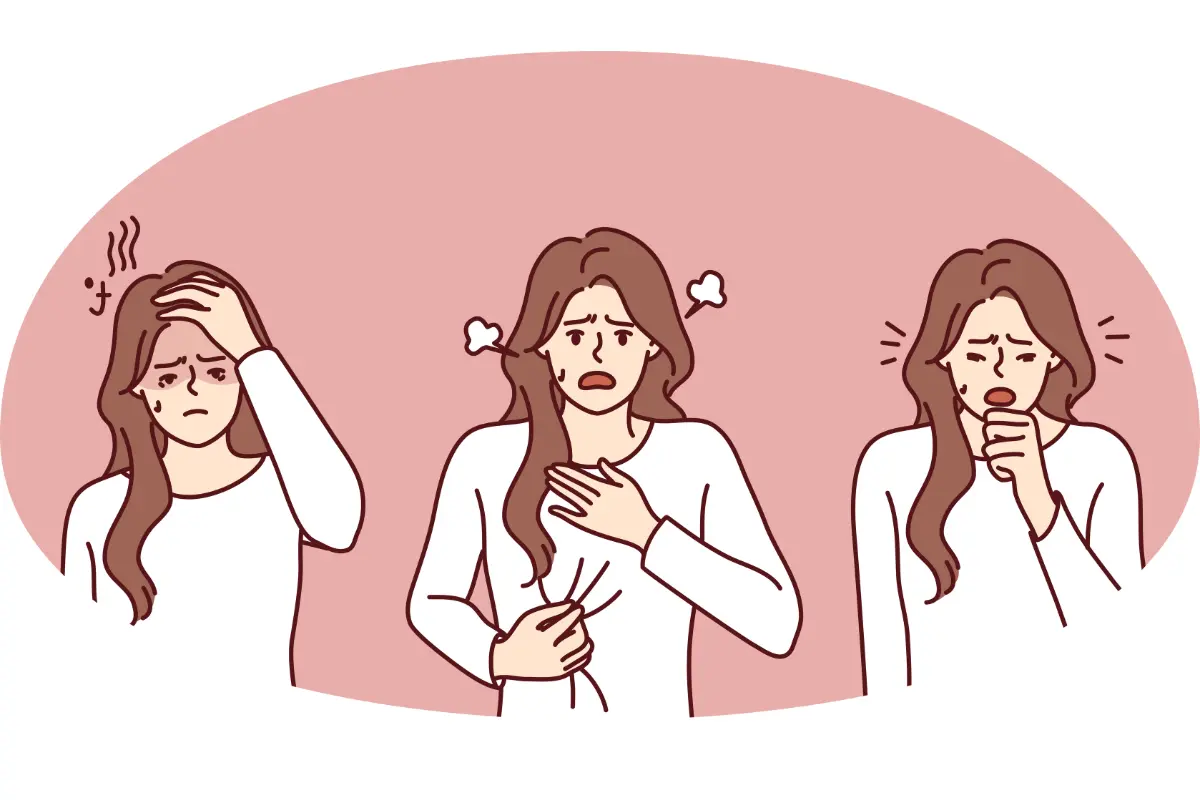Key Takeaways:
- Dealing with persistent COVID symptoms can be challenging
- Some individuals continue to experience symptoms long after the initial infection
- The cause of persistent COVID symptoms is still not fully understood
- Long COVID symptoms can affect individuals in a wide range of ways
- Living with persistent COVID symptoms can impact physical and mental health
- Managing persistent COVID symptoms requires a multifaceted approach
- It is essential to prioritize mental health and seek professional support
- Physical rehabilitation can help regain strength and mobility
- Integrative therapies may provide additional symptom relief
- Lifestyle adjustments are important for long-term COVID management
1. Understanding the Persistence of COVID Symptoms
Dealing with persistent COVID symptoms can be a challenging and frustrating experience. While many individuals recover from COVID-19 without any significant complications, there is a subset of people who continue to experience symptoms long after the initial infection has resolved. Understanding why some individuals experience persistent COVID symptoms is a complex task for medical professionals.
1.1 Unraveling the Mystery: Why Some People Experience Persistent COVID Symptoms
The cause of persistent COVID symptoms, also known as Long COVID or long-haul COVID, is still not fully understood. Some theories suggest that the virus may continue to directly affect certain organs or body systems, while others propose that the immune response to the virus may be responsible for ongoing symptoms. Ongoing research is actively being conducted to shed light on the underlying mechanisms of Long COVID and to develop effective treatment strategies.
1.2 The Varied Spectrum: Exploring the Range of Persistent COVID Symptoms
Long COVID symptoms can affect individuals in a wide range of ways. While some people may experience continued respiratory issues, such as shortness of breath or cough, others may struggle with fatigue, brain fog, muscle and joint pain, and even cardiovascular or neurological issues. It is important to recognize that Long COVID symptoms can be diverse and may require a multidisciplinary approach for effective management.
1.3 Long COVID and Its Impact on Physical and Mental Health
Living with persistent COVID symptoms can have a significant impact on both physical and mental health. The physical limitations and discomfort caused by ongoing symptoms can lead to frustration, anxiety, and depression. It is crucial to address the emotional aspect of Long COVID alongside the physical symptoms to ensure comprehensive care and support for individuals dealing with this condition.
2. Coping Mechanisms for Dealing with Persistent COVID Symptoms
Managing persistent COVID symptoms requires a multifaceted approach that addresses both the physical and emotional aspects of the condition. By implementing effective coping mechanisms, individuals can improve their quality of life and find some relief from the burden of persistent symptoms.
2.1 Navigating the Emotional Rollercoaster: Managing Anxiety and Depression
Living with persistent COVID symptoms can take an emotional toll on individuals. It is essential to prioritize mental health and seek professional support if needed. Techniques such as cognitive-behavioral therapy, mindfulness practices, and joining support groups can be beneficial for managing anxiety and depression associated with Long COVID.
2.2 Physical Rehabilitation Strategies to Regain Strength and Mobility
Persistent COVID symptoms can result in physical deconditioning and loss of strength and mobility. Physical rehabilitation, including exercises tailored to individual needs and abilities, can help rebuild strength, improve cardiovascular fitness, and regain mobility. Working with experienced physical therapists or rehabilitation specialists can provide guidance and support throughout the recovery process.
2.3 Holistic Approaches: Integrating Complementary Therapies for Symptom Relief
In addition to conventional medical treatments, some individuals with Long COVID may benefit from integrative therapies. These can include acupuncture, massage therapy, herbal medicine, or dietary modifications. It is essential to consult with a healthcare professional knowledgeable in integrative medicine to ensure the safe and effective use of these complementary therapies.







